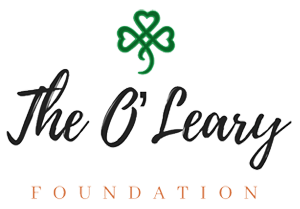- Heather Forrest
- Jun, 17, 2020
- Blog
- Comments Off on Abuse Among Disability Communities: Part 1

People with disabilities are vulnerable to abuse in unique ways. According to the American Psychological Association, women with disabilities are 40 percent more likely to experience intimate partner violence than women who do not have identified disabilities[i]. And although the cases are less frequent, men with disabilities are also vulnerable to physical and sexual abuse[ii].
There are several reasons behind these statistics. One of the reasons involves the caretaker roles that some partners of people with disabilities take on, which shifts the power dynamic and puts the partner who provides care in a position of control[iii]. Another reason that people with disabilities are particularly vulnerable to abuse relates to widespread misunderstanding of the relationship between the right to autonomy and the need for assistance; both abusers and people being abused don’t always understand that people who provide care cannot legally use that to claim authority over those who receive care[iv]. And a third reason is that people with disabilities who experience abuse do not always know of a safe alternative care provider to the person who is abusing them. Whatever the reason, it is clearly an issue that calls for wider awareness, in order for people to be equipped with the knowledge to recognize abuse and step in when necessary.
For people living in group care facilities, patterns of abuse can be particularly hard to identify, as the boundaries between residents and the staff who provide assistance are less concrete than in most professional relationships. For instance, support staff often assist residents with bathing and general personal hygiene routines, which makes physical interaction a common phenomenon. Although Michigan’s mandatory recipient rights trainings make it clear to care staff that the people receiving care are in charge and cannot legally be coerced into any physical interaction, the care staff sometimes hold informal authority based on differences in physical or mental abilities, placing them in a position of power[v].
 According to Michigan’s Mental Health Codes, staff at residential facilities are required by law to report any suspected abuse that they observe. Other people who observe possible cases of abuse, even if they are not staff, are still encouraged to report cases of suspected abuse, and will not be penalized for false reports if the reports were made in good faith[vi]. Anyone can report abuse, and everyone should feel able to do so. The Michigan Department of Health and Human Services has a 24-hour line for reporting abuse of vulnerable adults (which includes adults with disabilities). This number is 855-444-3911.
According to Michigan’s Mental Health Codes, staff at residential facilities are required by law to report any suspected abuse that they observe. Other people who observe possible cases of abuse, even if they are not staff, are still encouraged to report cases of suspected abuse, and will not be penalized for false reports if the reports were made in good faith[vi]. Anyone can report abuse, and everyone should feel able to do so. The Michigan Department of Health and Human Services has a 24-hour line for reporting abuse of vulnerable adults (which includes adults with disabilities). This number is 855-444-3911.
It is important to remember that adults with disabilities are adults, regardless of whether the disabilities are mental or physical, and that although they may have caretakers, they are not children. Adults with disabilities can legally engage in consensual sexual activities. Having a disability might make a person more vulnerable to abuse, but that does not mean that their right to be sexual should be taken away. Consensual sexual activities are legal between two adults, regardless of disability, as long as one of them is not coercing the other. However, if there are doubts over whether a person is being coerced into a sexual situation, it is always best to reach out for help or legal advice.
 As with any population, in order for people with disabilities to be safe from abuse, they need to be informed as to what constitutes abuse. This means knowing the vocabulary to articulate their experiences. For a person to describe an abusive encounter, it is useful for them to know the words for body parts and for actions. Elevatus Training, a company specializing in sexual education for people with disabilities, has put together a list of articles and other resources on sexuality and disability, available here: https://www.elevatustraining.com/resources-2/helpful-articles/. Sexuality education gives people the power to call the shots, to communicate what they like and don’t like, and to know and report if they are being sexually abused.
As with any population, in order for people with disabilities to be safe from abuse, they need to be informed as to what constitutes abuse. This means knowing the vocabulary to articulate their experiences. For a person to describe an abusive encounter, it is useful for them to know the words for body parts and for actions. Elevatus Training, a company specializing in sexual education for people with disabilities, has put together a list of articles and other resources on sexuality and disability, available here: https://www.elevatustraining.com/resources-2/helpful-articles/. Sexuality education gives people the power to call the shots, to communicate what they like and don’t like, and to know and report if they are being sexually abused.
To summarize, adults with disabilities are vulnerable to physical and sexual abuse, but that does not mean that they should be denied consensual physical and sexual encounters. Having a caretaker does not make someone legally the same as a child. Knowing how to talk about bodies, sex, and touch makes everyone safer. And when in doubt, it’s best to reach out.
Written by Anna Clements
Sources:
[i] American Psychological Association: https://www.apa.org/topics/violence/women-disabilities
[ii] Nixon, Jennifer “Defining the Issue: the Intersection of Domestic Abuse and Disability,” Social Policy and Society 8:4, 475–485 accessed: https://www-cambridge-org.resources.library.brandeis.edu/core/services/aop-cambridge-core/content/view/0840E20F54B146E89CA452D1D6FD1BB1/S1474746409990054a.pdf/defining_the_issue_the_intersection_of_domestic_abuse_and_disability.pdf
[iii] National Center for Biotechnical Information: https://www.ncbi.nlm.nih.gov/pmc/articles/PMC4692458/pdf/nihms745956.pdf
[iv] Nixon, “Defining the Issue: the Intersection of Domestic Abuse and Disability”
[v] Author’s note: I have personal experience working at a residential living facility for people with disabilities, and with having a disability, and some of these situations are based on my observations and experiences.
[vi] Mental Health Code Excerpt, Act 258 of 1974, Chapter 7 and 7A, accessed: https://www.michigan.gov/documents/mdhhs/MHC_Excerpt_Chptr_7-7A_621181_7.pdf
Sylvia’s Blog
- Wine Tasting 2025 May 19, 2025
- Comorbid Dangers: Financial Abuse November 4, 2024
- Comorbid Dangers: Domestic Violence & Animal Abuse September 16, 2024





